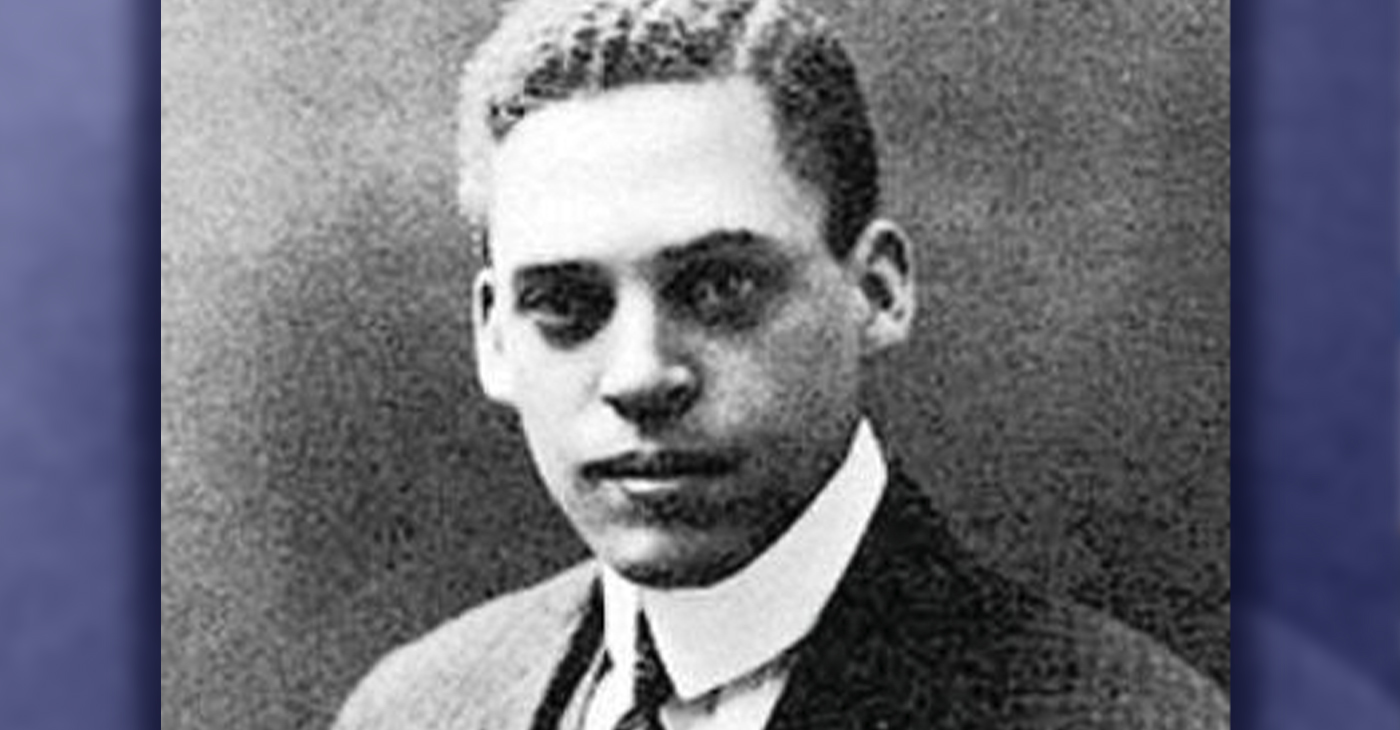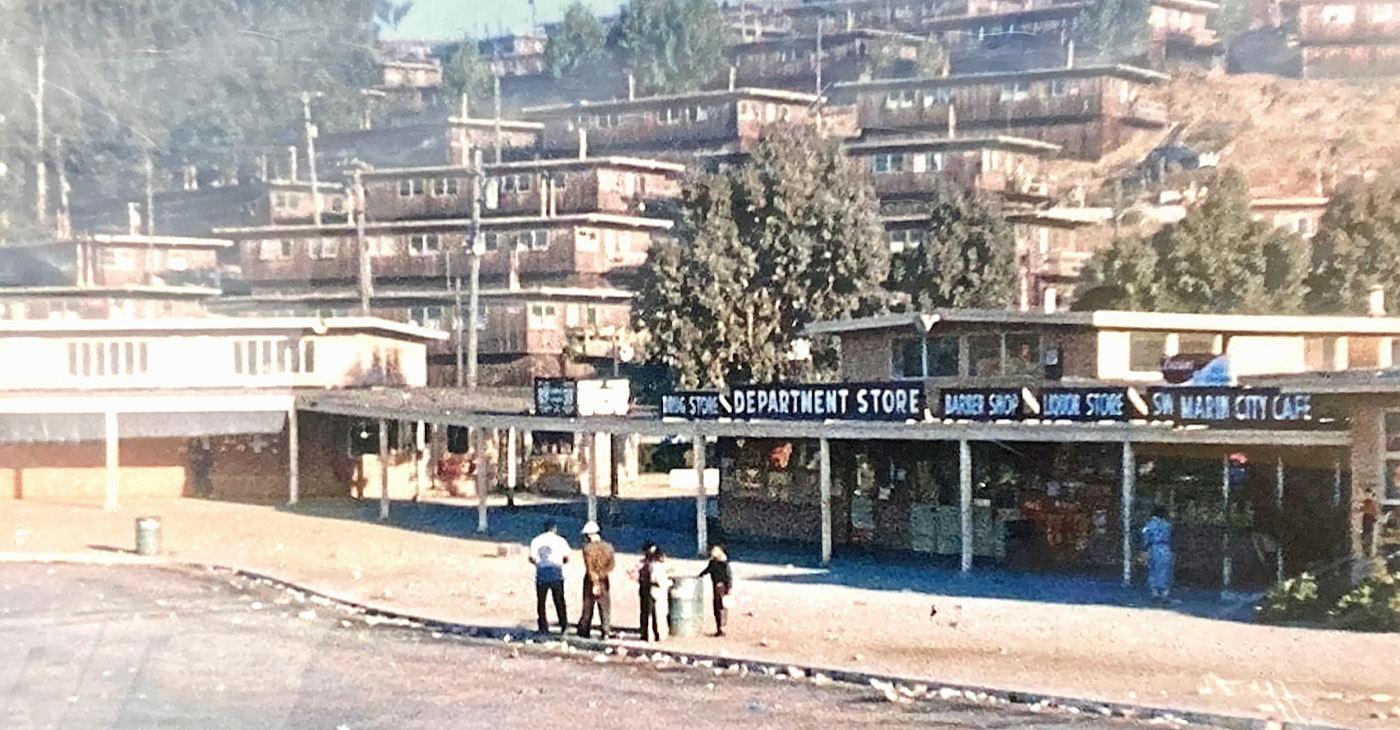Black History
Ernest Everett Just, NAACP’s First Spingarn Medalist, Approached Experiments with the Eyes of an Artist
As a scientist, it is said that Ernest Everett Just (1883–1941) “saw the whole, where others saw only parts. He noticed details others failed to see” and Dr. Charles Drew had referred to Just as “a biologist of unusual skill and the greatest of our original thinkers in the field.” Such was his reputation as a young scientist, in 1915, he became the NAACP’s first recipient of the Spingarn Medal.

By Tamara Shiloh
Known for his pioneering work in the physiology of development, specifically in fertilization, Ernest Everett Just (1883–1941) was an African American biologist and educator with a legacy of accomplishments that followed him long after his death.
Just was an experimental embryologist, a medical professional specializing in the study of reproduction. He was renowned for his attention to detail in conducting experiments on how sealife and invertebrate species like spiders, worms, lobsters reproduced. He believed also that in conducting research, the surface of cells deserved as much, if not more, study than the nucleus.
He was involved in research at the Marine Biological Laboratory at Woods Hole, Mass., and the Stazione Zoologica in Naples, Italy.
As a scientist, it is said that Just “saw the whole, where others saw only parts. He noticed details others failed to see” and Dr. Charles Drew had referred to Just as “a biologist of unusual skill and the greatest of our original thinkers in the field.”
Such was his reputation as a young scientist, in 1915, he became the NAACP’s first recipient of the Spingarn Medal.
Born in Charleston, S.C., Just’s early education took place in the small school his mother founded and directed. At age 12, he attended the Colored Normal Industrial Agricultural and Mechanics College at Orangeburg (now South Carolina State College). He graduated with a Licentiate of Instruction. This meant he was certified to teach in any Black school in South Carolina. He was 15 at that time.
But Just had no interest in teaching then. Instead. he traveled north with the goal of attending Kimball Union Academy in Meriden, N.H., to study classical music. His focus, however, would change once later enrolling at Dartmouth College where he developed an interest in biology after reading a paper on fertilization and egg development. He graduated in 1907, the only magna cum laude in his class, and soon after joined the English faculty at Howard University.
By 1910, Just was asked to take over the Biology Department, teaching physiology. Soon after, he became the first head of the new Department of Zoology and stopped teaching English courses altogether.
As a scientist, it is said that Just “saw the whole, where others saw only parts. He noticed details others failed to see.”
He persisted in his research despite the discrimination and limitations imposed on him as a Black man.
Just was a Julius Rosenwald Fellow in Biology of the National Research Council (1920–1931). This afforded him the opportunity to work in Europe when racial discrimination hindered his opportunities in the United States. It was also the time when he penned several research papers, including the 1924 publication “General Cytology.”
Just married high school teacher Ethel Highwarden in 1912. The couple had three children prior to their divorce in 1939. He then married Hedwig Schnetzler, a philosophy student he met in Berlin. In 1940, the German Nazis imprisoned Just in a camp. Schnetzler’s father, however, was instrumental in his release.
Just died the following year of pancreatic cancer in Wash., D.C.
Encourage young readers to discover how Just’s keen observations of sea creatures revealed new insights about egg cells and the origins of life in “The Vast Wonder of the World: Biologist Ernest Everett Just” by Melina Mangal and Luisa Uribe.
Activism
Oakland Post: Week of April 17 – 23, 2024
The printed Weekly Edition of the Oakland Post: Week of April 17 – 23, 2024

To enlarge your view of this issue, use the slider, magnifying glass icon or full page icon in the lower right corner of the browser window. ![]()
Black History
Matthew Henson: Explorer Extraordinaire
Matthew Henson, a trailblazing explorer who overcame countless obstacles to leave an incredible mark on history. Born on August 8, 1866, in Charles County, Maryland, his journey is a testament to the power of determination and the spirit of adventure.

By Tamara Shiloh
Matthew Henson, a trailblazing explorer who overcame countless obstacles to leave an incredible mark on history. Born on August 8, 1866, in Charles County, Maryland, his journey is a testament to the power of determination and the spirit of adventure.
Henson’s life began amidst the backdrop of post-Civil War America, where opportunities for African Americans were scarce. From a young age, he possessed an insatiable curiosity about the world beyond his small town. At the age of 12, he embarked on a journey that would change the course of his life forever when he joined a merchant ship as a cabin boy.
His most famous expedition was his journey to the Arctic with renowned explorer Robert E. Peary. In 1887, Henson joined Peary’s crew as a seaman and quickly proved himself to be invaluable with his skills as a navigator and craftsman. Over the course of several expeditions, Matthew endured extreme cold, treacherous terrain, and grueling conditions as he and Peary sought to reach the elusive North Pole.
In 1908–09, Peary set out on his eighth attempt to reach the North Pole. It was a big expedition, with Peary planning to leave supplies along the way. When he and Henson boarded their ship, the Roosevelt, leaving Greenland on August 18, 1909, they were joined by a large group. This included 22 Inuit men, 17 Inuit women, 10 children, 246 dogs, 70 tons of whale meat, blubber from 50 walruses, hunting gear, and tons of coal.
In February, Henson and Peary left their anchored ship at Ellesmere Island’s Cape Sheridan, along with the Inuit men and 130 dogs. They worked together to set up a trail and supplies along the way to the Pole.
Peary picked Henson and four Inuit people to join him in the final push to the Pole. However, before they reached their destination, Peary couldn’t walk anymore and had to ride in a dog sled. He sent Henson ahead to scout the way. In a later interview with a newspaper, Henson recalled being in the lead and realizing they had gone too far. The group turned back, and Henson noticed his footprints helped guide them to their destination. At that location, Henson planted the American flag.
Henson’s legacy extends far beyond his expeditions to the Arctic. He shattered racial barriers in the world of exploration and inspired countless individuals, regardless of race, to dream big and pursue their passions. In 1937, he was finally recognized for his achievements when he was inducted into The Explorers Club, an organization dedicated to promoting scientific exploration and field research.
Matthew Henson died in the Bronx, New York, on March 9, 1955, at the age of 88.
Art
Marin County: A Snapshot of California’s Black History Is on Display
The Marin County Office of Education, located at 1111 Las Gallinas Ave in San Rafael, will host the extraordinary exhibit, “The Legacy of Marin City: A California Black History Story (1942-1960),” from Feb. 1 to May 31, 2024. The interactive, historical, and immersive exhibit featuring memorabilia from Black shipyard workers who migrated from the South to the West Coast to work at the Marinship shipyard will provide an enriching experience for students and school staff. Community organizations will also be invited to tour the exhibit.

By Post Staff
The Marin County Office of Education, located at 1111 Las Gallinas Ave in San Rafael, will host the extraordinary exhibit, “The Legacy of Marin City: A California Black History Story (1942-1960),” from Feb. 1 to May 31, 2024.
The interactive, historical, and immersive exhibit featuring memorabilia from Black shipyard workers who migrated from the South to the West Coast to work at the Marinship shipyard will provide an enriching experience for students and school staff. Community organizations will also be invited to tour the exhibit.
All will have the opportunity to visit and be guided by its curator Felecia Gaston.
The exhibit will include photographs, articles and artifacts about the Black experience in Marin City from 1942 to 1960 from the Felecia Gaston Collection, the Anne T. Kent California Room Collection, The Ruth Marion and Pirkle Jones Collection, The Bancroft Library, and the Daniel Ruark Collection.
It also features contemporary original artwork by Chuck D of the Rock and Roll Hall of Fame group Public Enemy, clay sculptures by San Francisco-based artist Kaytea Petro, and art pieces made by Marin City youth in collaboration with Lynn Sondag, Associate Professor of Art at Dominican University of California.
The exhibit explores how Marin City residents endured housing inequities over the years and captures the history of plans to remove Black residents from the area after World War II. Throughout, it embodies the spirit of survival and endurance that emboldened the people who made Marin City home.
Felecia Gaston is the author of the commemorative book, ‘A Brand New Start…This is Home: The Story of World War II Marinship and the Legacy of Marin City.’ Thanks to the generous contribution of benefactors, a set of Felecia’s book will be placed in every public elementary, middle, and high school library in Marin.
In addition, educators and librarians at each school will have the opportunity to engage with Felecia in a review of best practices for utilizing the valuable primary sources within the book.
“Our goal is to provide students with the opportunity to learn from these significant and historical contributions to Marin County, California, and the United States,” said John Carroll, Marin County Superintendent of Schools.
“By engaging with Felecia’s book and then visiting the exhibit, students will be able to further connect their knowledge and gain a deeper understanding of this significant historical period,” Carroll continued.
Felecia Gaston adds, “The Marin County Office of Education’s decision to bring the Marin City Historical Traveling Exhibit and publication, ‘A Brand New Start…This is Home’ to young students is intentional and plays a substantial role in the educational world. It is imperative that our community knows the contributions of Marin City Black residents to Marin County. Our youth are best placed to lead this transformation.”
The Marin County Office of Education will host an Open House Reception of the exhibit’s debut on Feb. 1 from 4 p.m. – 6 p.m.. All school staff, educators, librarians, and community members are encouraged to attend to preview the exhibit and connect with Felecia Gaston. To contact Gaston, email MarinCityLegacy@marinschools.org
-

 Activism4 weeks ago
Activism4 weeks agoOakland Post: Week of March 27 – April 2, 2024
-

 #NNPA BlackPress4 weeks ago
#NNPA BlackPress4 weeks agoCOMMENTARY: D.C. Crime Bill Fails to Address Root Causes of Violence and Incarceration
-

 #NNPA BlackPress4 weeks ago
#NNPA BlackPress4 weeks agoFrom Raids to Revelations: The Dark Turn in Sean ‘Diddy’ Combs’ Saga
-

 #NNPA BlackPress4 weeks ago
#NNPA BlackPress4 weeks agoCOMMENTARY: Lady Day and The Lights!
-

 #NNPA BlackPress4 weeks ago
#NNPA BlackPress4 weeks agoMayor, City Council President React to May 31 Closing of Birmingham-Southern College
-

 #NNPA BlackPress4 weeks ago
#NNPA BlackPress4 weeks agoBaltimore Key Bridge Catastrophe: A City’s Heartbreak and a Nation’s Alarm
-

 #NNPA BlackPress4 weeks ago
#NNPA BlackPress4 weeks agoBaltimore’s Key Bridge Struck by Ship, Collapses into Water
-

 #NNPA BlackPress4 weeks ago
#NNPA BlackPress4 weeks agoBeloved Actor and Activist Louis Cameron Gossett Jr. Dies at 87





















































